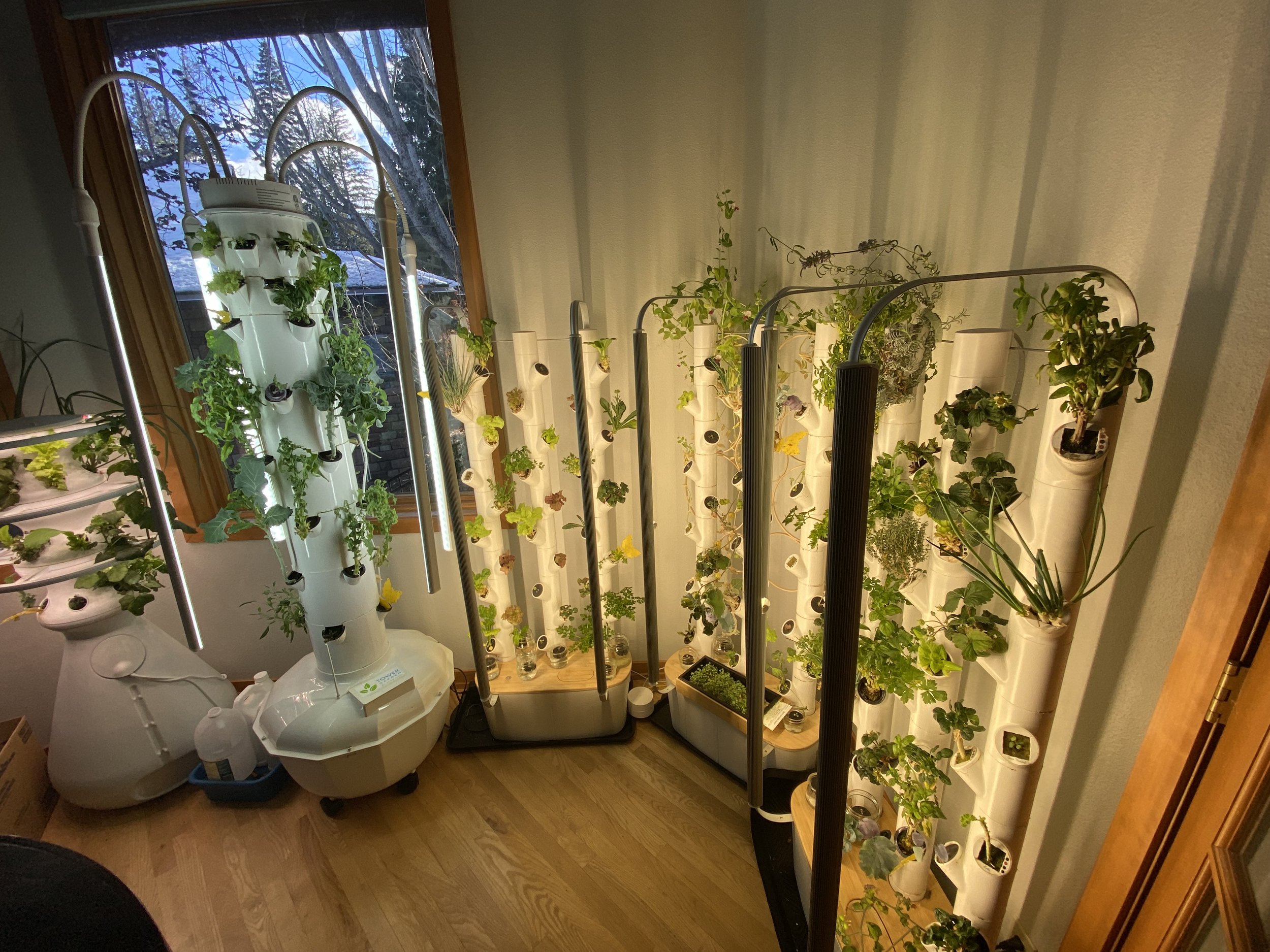Hydroponic Herbal Medicines
I live in an area that has a pretty short growing season. We generally speaking get at least one snowfall in April, and our first frost is usually in September. While I love growing outdoors, it’s not always feasible for me. At one point, I had a HUGE garden, that probably close to 1/4 acre. I now live on a steep hillside that causes accessibility challenges. When we moved here, I knew I needed to find a way to continue to garden. I had used some small hydroponic systems in the past for growing salad greens, cooking herbs, and maybe a few cherry tomatoes in the winter, but I decided to go headlong into hydroponics when I didn’t have as much outdoor space as I was used to.
I now grow year-round in various (larger) hydroponic systems. I have a couple of lettuce grows, and a few tower gardens which have been my workhorse systems that are going strong after 7 years of full time year-round use. (I have some other systems too, but I’m not overly happy with them so I won’t go into that.) All that to say, if you’ve bought herbs from me before, chances are, at least some of them were grown by me. I’m not able to grow EVERYTHING, so I’m currently focusing my efforts on my most-used herbs (plus mushrooms, but that will be a post for another day).
a few of my hydroponic gardens from last winter
A few bullet points about hydroponic growing:
water-based, soil-less gardening. I test the water and add nutrients directly to the water. Pest issues are a lot less frequent since there isn’t any soil.
space efficient. I currently have somewhere around 120+ plants growing in what used to be my dining room. There is still room for our table in there, but we mostly eat at our kitchen island anyway! During the warmer months, I have another 3 hydroponic gardens that I set up on our deck, adding another 90 plants or so.
year-round. It has been well below zero here the past few days (I believe we were at -13), and my plants aren’t bothered in the slightest! The only downside is that if our power goes out, which happens more frequently than I’d like here, I need to manually water the gardens a couple of times per day.
plant health. Generally speaking when I plant in soil, I’m a pretty lazy gardener. I will add nutrients if I think of it, but I don’t pay a lot of attention unless there is an issue. With hydroponics, I become a bit more of a stickler with adding nutrients. Plants and herbs are a product of their environment, and I tend to think that my herbs are pretty happy with the amount of attention they get!
water efficient. While it might seem counterintuitive, hydroponics actually use less water than soil-based gardens. The water is recycled through the system, and overall less is used.
carbon footprint & sustainability. I am a big proponent of self-sufficiency. If I can grow something instead of buying it, you can bet I’m going to try! There are so many benefits to this, but wouldn’t you rather buy an herb directly from the person who grew it, rather than through someone who bought it from some company, who bought it from someone… (disclaimer here: if I can’t/don’t grow an herb that I need, I buy from the best sources that I can find! It’s just not the same as growing it myself.) If I have an abundance, I dehydrate them right away to preserve them the best I can.
Hydroponic gardens are an amazing approach to sustainable, space-efficient growing. While it’s not for everyone, it’s such a good way to ensure healthy, consistent plants, year-round!
beautiful calendula, grown indoors
gigantic parsley harvested in the middle of winter




